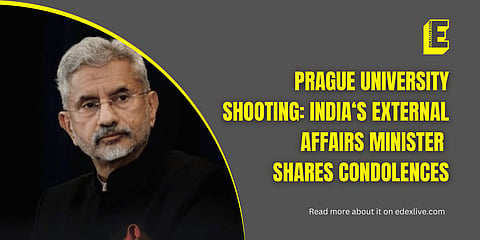

Following the tragic shooting incident at a university in Prague on Thursday, December 21, which led to the death of 14 people, India’s External Affairs Minister S Jaishankar expressed deep sorrow in a heartfelt post on social media platform X.
"Saddened by the news of the shooting incident at Prague's Charles University. Deepest condolences to the families of the victims," posted EAM Jaishankar.
As many as 14 people were killed and 25 wounded in a shooting at a university in Prague on Thursday, CNN reported.
What happened?
In a press conference on Thursday, Czech Police Chief Martin Vondrasek said the information he had received so far indicated the shooter took his own life, but added it was not yet confirmed.
He also said the suspect had not been formally identified because of the severity of his injuries, ANI reported.
In a later news conference on Thursday night, Vondrasek revised the number of people killed to 14, after previously saying 15 people had died. Of the 25 people injured, ten were in serious condition, the police chief said, as per CNN.
Emergency services earlier said that nine people had been severely injured, five or six received medium-severe injuries and ten were lightly injured. The authorities have also revised down the earlier stated number of people injured, but said the numbers could still change given the developing situation.
During the shooting, some students locked themselves in classrooms, the police said in an update on X. A picture shared on social media also showed several students hiding on a ledge high up the building.
The incident — at the Faculty of Arts building of Charles University — happened in the centre of the capital. The area is popular with tourists and close to major attractions, just across the Vltava River from Prague Castle, as per CNN.
The university was holding classes on Thursday and was due to go on Christmas break on December 23, according to a schedule on the university's website.
According to CNN, the Czech Republic has relatively liberal gun laws compared to the rest of the European Union. To obtain a gun legally, a person needs an official firearm licence, which requires a medical examination, a weapon proficiency exam and no previous criminal record.
